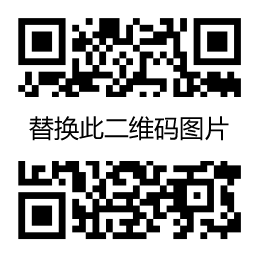章节 第二十四单元
关键词
内容
学习目标:
一.词汇短语
1.tidy one’s room整理某人的房间
2. go out for a walk出去散步
3.instead/ instead of …代替/代替……
4.every five minutes每5分钟
5.look over检查
6. take enough exercise做足够运动
7.keep …clean and tidy保持……的干净、整洁
8.No problem. 没问题。
二.日常交际用语:
1.Do you have to tidy the room ?
Yes, I do. No, I don’t.
2. What does she have to do ?
三.语法:
状态动词“have to ”的用法,及其与must在意义上,用法上的区别。
教学重点与难点
A.情态动词:have to (do sth )
has to (do sth )
had to (do sth )
1.情态动词have to常可代替情态动词must。从意义上讲must强调说话人主观的看法,意思是“应该”、“必须”、“一定要”,have to表示客观需要做的事,意为“必须”、“不得不”。
e.g.
a)You must tell me. 你必须告诉我。
b)He has to work on Sundays. 星期天他得上班。
2)从形式上说,must适用于所有人称,无时态变化,而have to有人称、时态的变化。第三人 称单数的变化为has to,一般过去时的变化为had to,一般将来时的变化为will have to。
e.g.
a)Yesterday afternoon I had to stay at home to look after my younger brother.昨天下午我不得不呆在家里照顾我弟弟。
3.have to的一般疑问句及其简略答语与其他的情态动词不同,需用助动词do/does(did)或will等构成;它的特殊疑问句同样也需用这些助动词构成。
e.g.
a)do you have to leave now ?你现在必须得离开吗?
Yes, I do.是的,我必须得走。
b)why does she have to work on Sundays ?
她为什么必须在周日工作?
4.have to的否定式don’t have to可以与情态动词needn’t互换,表示“不必”。
e.g.
a)You don’t have to /needn’t wash all the clothes.
你不必洗所有衣服。
B.重点难点解释
1.Come out for a walk in the park.
出来到公园里散散步。
2.I may come later.我可能过会来。
later意为“稍后,随后”。
e.g.
a)I’ll see you later.过会儿见。
3.Why don’t you come and play volleyball instead ?
为什么你不来改打排球呢?
(1)Why don’t …?表示一种建议,也可改用“Why not +动词原形……”结构。比如,此句 就可以改写为:
Why not come and play volleyball instead ?
(2)instead的意思是“代替”,一般放于句末。
e.g.
a)Let him go instead.让他代你去。
4.She has to help with the washing.她得帮忙洗衣服。
此句help后省略了宾语her mother。
5.Mommy是mommy的大写形式。mommy是mom的儿语,都是美国英语,意思是“妈妈”。英国英 语称之为mummy和mum。
6.He can’t make it today.他今天不行(“不成”或“做不到”)。
make it是口语用法,一般用作不及物动词,意为“做成”、“成功”或“达到目的”。
e.g.
A: Can we catch the train ?我们能赶上火车吗?
B:I hope we can make it.希望来得及。
7.Find out three jobs your friends have to do at home.
找出你的朋友们在家必须做的三种工作。
(1)job意思是“工作”、“零活”或“杂务”,是个可数名词。例如:He found a good job.他找到一份好工作。
(2)your friends have to do at home是个定语从句,省略了引导词which或that。句子后置作定语,修饰前面的名词“three jobs”。
8.I have to sit down and rest every five minutes.
我每5分钟就得坐下来休息。
every此处译为“每……”,“每隔/逢……。”
e.g.
a)Buses come every ten minutes.
公共汽车每隔10分钟来一次。
b)They have a test every two weeks.
他们每隔两星期有一次测验。
9.―What do you mean?你说的是什么意思?
―I mean you eat too much food, but you don’t take enough exercise.
我的意思是说你吃得太多,而身体的锻炼不够。
(1)mean此处是一个动词,译为“含有……意思”,“意指”。例如:I mean you made a mistake.我的意思是说你犯了个错误。
(2)food是不可数名词,故此处用much,而不用many,too是个程度副词,用以修饰后面的形 容词much。
e.g.
a)There are too many people in the room.
屋子里有太多的人。
(3)exercise这个名词,作为可数名词,意为“练习”、“训练”;作为不可数名词,意为 “运动”。
e.g.
a)Please do these exercises.请做这些练习。
b)You should take some exercise.你该做些运动。
但它做“操”讲时,需用其复数形式。
e.g.
a)morning/eye exercises早/眼操
10.Not before or after meals──instead of them.
不是饭前或饭后吃,而是代替三餐。
instead of …,后面可接名词、代词、―ing形式,译为“代替”,“而不”。
e.g.
a)I will go to see her instead of you.
我要去看的是她而不是你。
b)I have to finish my work instead of going out.
我必须完成工作,而不能出去。
C.重点单词与词组的用法:
1.tidy的用法
(1)当它用作形容词时,意为“整齐的”、“整洁的”。
(2)当它用作动词时,意为“弄整洁”。
e.g.
a)This is a tidy room.这是个整洁的房间。
b)You must keep the room tidy.你必须保持房间的整洁。
c)He is tidying his room at home. 他正在家整理房间呢。
2.关于look引导的短语
(1)look after…(同:take care of…)照料
(2)look for…寻找
(3)look like…看起来像,像是……的样子
(4)look out向外看,当心
(5)look over检查
e.g.
a)The nurse looked after the babies. 护士照料婴儿。
b)What are you looking for ?你在找什么?
c)You look like your father.你长得像你父亲。
d)It looks like rain.看起来像是要下雨了。
e)He was looking out of the window.他正向窗外看。
f)Look out! The train is coming.小心!火车就要来了。
g)The doctor is looking over him.医生在给他作检查。
3.meal与dinner
①dinner意为“正餐”,指一天中吃得较丰富的一顿饭,一般在中午或晚上吃,此时dinner 为抽象名词,一般不带冠词。
②meal意为“饭”,指一日三餐的通称,包括breakfast(早饭),luch(午饭),supper(晚饭),是可数名词。
e.g.
a)Would you like to have dinner with us ?
你和我们一起吃饭好吗?
b)We have three meals a day.
我们一天吃三顿饭。
日常交际用语:
1.I/You/We/They have to …
(help with the housework帮做家务wear more clothes多穿些衣服)
2.She/He has to …
(mend her/ his bike修自行车do her /his homework做作业)
3.I/He/She/You/We/They had to …
(stay at home yesterday昨天呆在家里do some washing last night昨晚洗些衣服)
4.Do I have to…?Yes, you do (have to ).No, you don’t …
(eat less food少吃些食物look after the baby照顾婴儿)
Does he/she have to …? Yes, he/she does.
No, he/she doesn’t.
(do all the exercises做所有的练习bring some food带些食物来)
5.Who/Whom do we have to visit ?我们必须拜访谁?
e.g.
a)What does he have to say in the meeting?
在会上他该说什么?
b)Which exercise does he have to do ?他必须做哪个练习?
“have to ”与when引导的时间状语从句,或if引导的条件状语从句连用的句型训练:
声明:有的资源均来自网络转载,版权归原作者所有,如有侵犯到您的权益 请联系邮箱:yuname@163.com 我们将配合处理!
原文地址:八年级英语第二十四单元You mustn/t play on the road !_八年级英语教案-英语教案,试题,论文,听力-教学教案发布于2021-10-22

